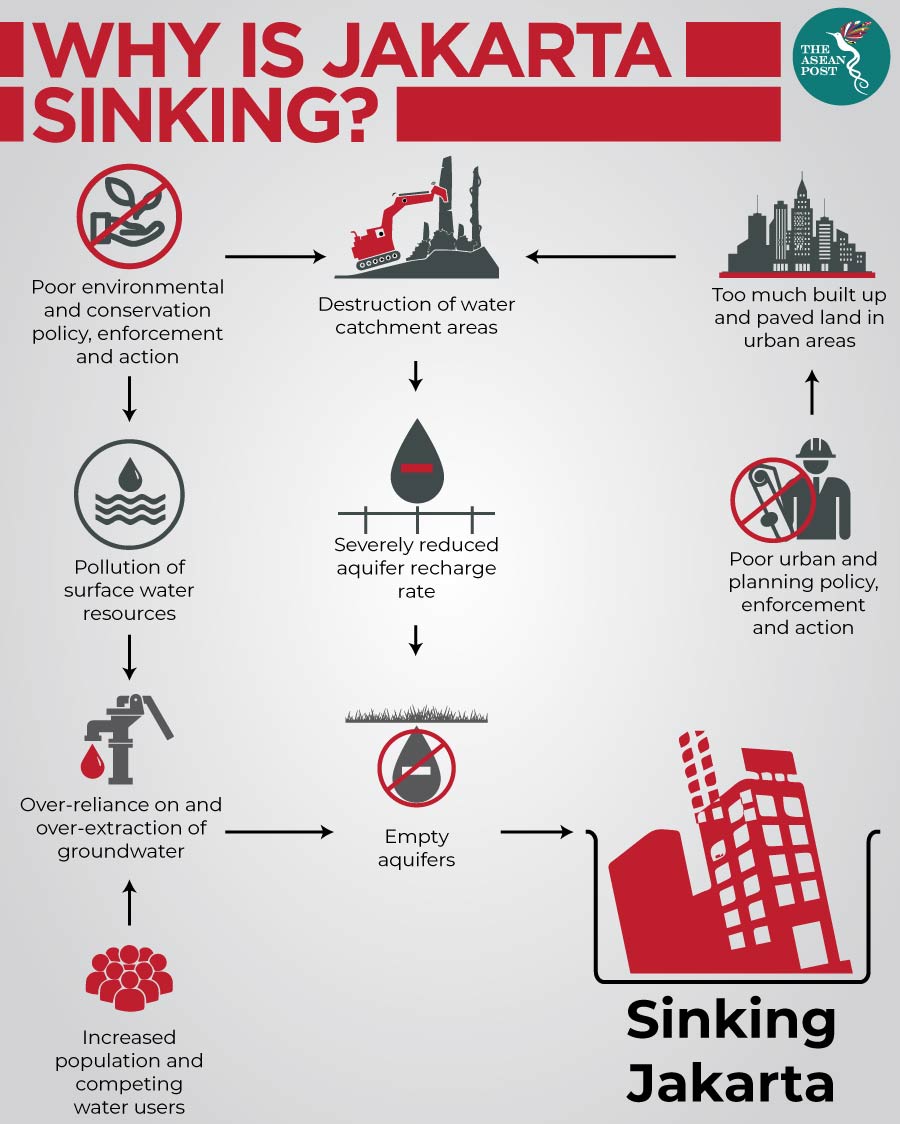The plan to relocate Indonesia’s capital city is in its first phase. The government has already proposed the draft of laws to parliament on relocation of the capital city from Jakarta to Kalimantan. This policy has been decided on by the current government and the question remains on the possible impact this could have among the affected societies.
The various narratives in favour of moving the country's capital include Jakarta’s dense population, disorganised city planning, flooding, and health quality concerns. While these reasons are acceptable, more in-depth analysis should be taken to examine other important aspects. Some arguments rejecting the transfer of the capital city have also garnered strong support from the general public. One is the high cost of moving the capital which is predicted to be around IDR466 trillion (US$33.5 billion). Such a large budget could be used for more pressing issues which the country is facing, such as reducing poverty, improving quality of education as well as increasing health care budgets.
Former Indonesian president, Susilo Bambang Yudhoyono, commonly known as SBY, has voiced his concerns over the current government’s plans. He stated that there are several unanswered questions on the cost and how it will be paid for, and whether they plan to sell state assets and accumulate foreign debts. The less than satisfactory arguments from Jokowi’s administration is making headlines and has become a hot topic for debate.
Furthermore, the majority of the public believe that the idea will not address the major problems faced in Jakarta, such as traffic jams and environmental threats that occur not from governmental activities but economic and industrial ones in the city and surrounding areas. Therefore, moving the capital city is not a viable solution for a better Jakarta.
There have been at least 53 countries that have moved their capital city, of which some have failed. For instance, Brazil, under President Juscelino Kubitschek, moved the capital city from Rio de Janeiro to Brasilia. Residents from the old capital were reluctant to settle in the city because it did not meet expectations in addition to being mostly occupied by elites. Another case is Myanmar in which the capital was relocated from Yangon to Naypyidaw, where citizens did not want to move due to the high cost of living cost and limited public facilities.

The idea of starting afresh by moving the capital city is not new. Indonesia has experienced many moves since the Dutch colonial period under the leadership of General J.P Graaf Van Limburg, starting from the plan to relocate the capital of the Dutch East Indies to Bandung in 1916. Then, during the early days of independence and the Dutch military aggression I and II, the capital was relocated several times to Yogyakarta (1946 & 1949), Bireuen, Aceh (1948), Bukittinggi, West Sumatera (1948), and Jakarta (1950).
After seven years of Jakarta as the capital city, Soekarno, the first President of Indonesia, considered Palangka Raya (1957) as an alternative choice for the new state capital, given its strategic position for Indonesia's geographical condition. However, the plan was stopped before it could be implemented following a transfer of power to General Suharto. Similar to his predecessor, Suharto also had a policy to move the capital to the Jonggol region, Bogor, West Java by establishing the area as an independent city through presidential decree number 1 in 1997. Unfortunately, Suharto had to step down in 1998 before the proposal was actualised. During his time in office, President Abdurrahman Wahid also proposed to move the capital city to Subang area, West Java. Likewise, Susilo Bambang Yudhoyono's administration also discussed the transfer of the capital when Jakarta suffered from floods in 2010 and 2013.
According to the Constitution, Undang-undang Dasar-Negara (UUD) 1945, the capital is legally open for relocation as the current foundational law does not specify which region can become the capital city. This is proven in history where several cities in Indonesia became the state’s capital due to different reasons. Nonetheless, transfer of the capital must be analysed from the perspective of the constitution for consideration.
First, there is no doubt that the move will require a significant budget from tax or non-tax revenues, and this could be challenged with the mandate of Article 23 paragraph (2), which requires the bulk of the state budget be used for the prosperity of Indonesian citizens. It raises a question whether the need to move the capital is an urgent matter or just an exercise of power. Additionally, the plan to relocate goes against initial promises of Jokowi’s administration, namely building human resources rather than building infrastructure. Second, the quality of life in Jakarta is getting worse and therefore, moving the capital cannot deliver an effective solution to the growing overpopulation problem in Jakarta and the evident inequality in economic development in Indonesia which has led to the massive human exodus to the capital.
To tackle this problem, President Jokowi has been working on progressive development policies, namely “building from the east” and “building from the village”. Empowerment and utilisation of village funds from the central government should be able to reduce relocation to Jakarta as well as solve the problem of inequality.
Cultural perspectives do not seem to be a pivotal element to the plans, yet should certainly be taken into account. The government should consider whether there is a consensus in Java to accept the relocation plan since the two regions have been integrated for a very long time.
A comfortable and peaceful capital city is a dream of every country. Nevertheless, the policy to move the state’s capital city should be studied carefully and not decided on hastily because it will undoubtedly have a significant impact on the social and economic well-being of all Indonesians.

Related articles:
